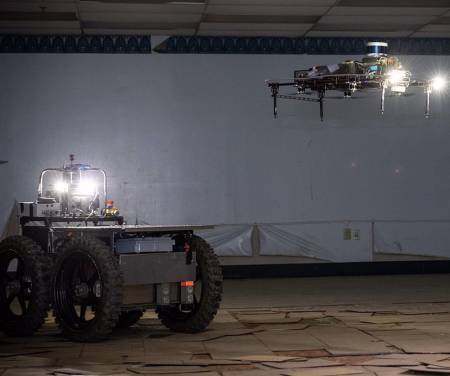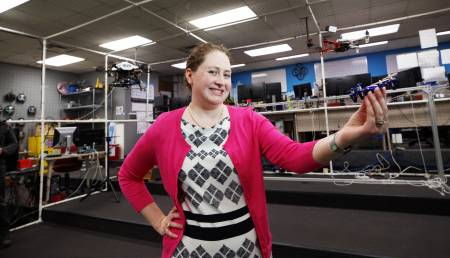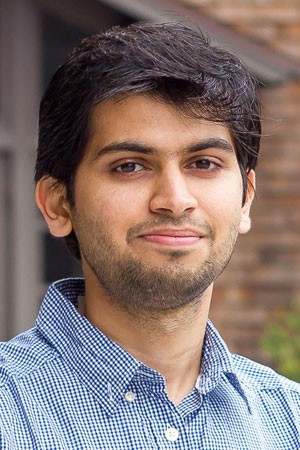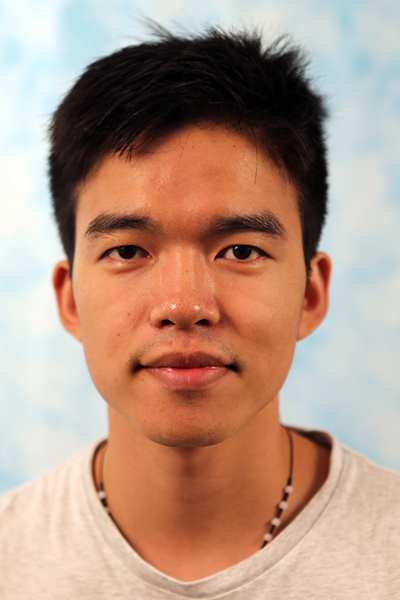Learning-based 6D Object Pose Estimation in Real-world Conditions
Abstract: Estimating the 6D pose, i.e., 3D rotation and 3D translation, of objects relative to the camera from a single input image has attracted great interest in the computer vision community. Recent works typically address this task by training a deep network to predict the 6D pose given an image as input. While effective on [...]
SubT Fall Update Webinar Led by CMU’s Robotics Institute faculty members Sebastian Scherer and Matt Travers, as well as OSU’s Geoff Hollinger
We invite you to meet members of the award-winning Team Explorer, the CMU DARPA Subterranean Challenge team, and learn more about this groundbreaking competition. Some of the world's top universities have entered the DARPA Subterranean Challenge, developing technologies to map, navigate, and search underground environments. Led by CMU's Robotics Institute faculty members Sebastian Scherer and Matt [...]
Deep Learning: (still) Not Robust
Abstract: One of the key limitations of deep learning is its inability to generalize to new domains. This talk studies recent attempts at increasing neural network robustness to both natural and adversarial distribution shifts. Robustness to adversarial examples, inputs crafted specifically to fool machine learning models, are arguably the most difficult type of domain shift. [...]
Drones in Public: distancing and communication with all users
Abstract: This talk will focus on the role of human-robot interaction with drones in public spaces and be focused on two individual research areas: proximal interactions in shared spaces and improved communication with both end-users and bystanders. Prior work on human-interaction with aerial robots has focused on communication from the users or about the intended direction [...]
End-to-End ‘One Networks’: Learning Regularizers for Least Squares via Deep Neural Networks
Abstract: Linear Restoration Problems (or Linear Inverse Problems) involve reconstructing images or videos from noisy measurement vectors. Notable examples include denoising, inpainting, super-resolution, compressive sensing, deblurring and frame prediction. Often, multiple such tasks should be solved simultaneously, e.g., through Regularized Least Squares, where each individual problem is underdetermined (overcomplete) with infinitely many solutions from which [...]
Data Scalability for Robot Learning
Abstract: Recent progress in robot learning has demonstrated how robots can acquire complex manipulation skills from perceptual inputs through trial and error, particularly with the use of deep neural networks. Despite these successes, the generalization and versatility of robots across environment conditions, tasks, and objects remains a major challenge. And, unfortunately, our existing algorithms and [...]
Carnegie Mellon University
Learning to Generalize beyond Training
Abstract: Generalization, i.e., the ability to adapt to novel scenarios, is the hallmark of human intelligence. While we have systems that excel at cleaning floors, playing complex games, and occasionally beating humans, they are incredibly specific in that they only perform the tasks they are trained for and are miserable at generalization. One of the [...]
Carnegie Mellon University
Planning and Execution using Inaccurate Models with Provable Guarantees on Task Completeness
Abstract: Modern planning methods are effective in computing feasible and optimal plans for robotic tasks when given access to accurate dynamical models. However, robots operating in the real world often face situations that cannot be modeled perfectly before execution. Thus, we only have access to simplified but potentially inaccurate models. This imperfect modeling can lead [...]
Detecting Image Synthesis — Shallow and Deep
Abstract: The proliferation of synthetic media are subject to malicious usages such as disinformation campaigns, posing potential threats to media integrity and democracy. A way to combat this is developing forensics algorithms to identify manipulated media. In the beginning of the talk, I will discuss how one can train a model to detect photos manipulated [...]
Carnegie Mellon University
Shreyas Srivatchan – MSR Thesis Talk
Zoom link: https://cmu.zoom.us/j/92767964421?pwd=N0NqRXZ5M04zQUhObklyZ3ZTL29jZz09 Meeting ID: 927 6796 4421 Password: password Title: Development of a balancing robot as an indoor service agent Abstract: This work presents a robotic system that can navigate human environments, respond to speech commands, and perform simple tasks. To achieve this, a ballbot-type robot that balances and navigates on a single spherical [...]
Carnegie Mellon University
Constraint-Based Coverage Path Planning: A Novel Approach to Achieving Energy-Efficient Coverage
Abstract: Despite substantial technological progress that has driven the proliferation of robots across various industries and aspects of our lives, the lack of a decisive breakthrough in energy storage capabilities has restrained this trend, particularly with respect to mobile robots designed for use in unstructured and unknown field environments. The fact that these domains are [...]
Deep Learning to Distinguish Recalled but Benign Mammography Images in Breast Cancer Screening
Abstract: Breast cancer screening using the standard mammography exam currently exhibits a high false recall rate (11.6% for women in the U.S.). Only a low proportion (0.5%) of women who were recalled for additional workup were actually found to have breast cancer. As a result of the unnecessary stress and follow-up work from these false [...]
Carnegie Mellon University
Residual Force Control for Agile Human Behavior Imitation and Extended Motion Synthesis
Abstract: Reinforcement learning has shown great promise for synthesizing realistic human behaviors by learning humanoid control policies from motion capture data. However, it is still very challenging to reproduce sophisticated human skills like ballet dance, or to stably imitate long-term human behaviors with complex transitions. The main difficulty lies in the dynamics mismatch between the [...]











